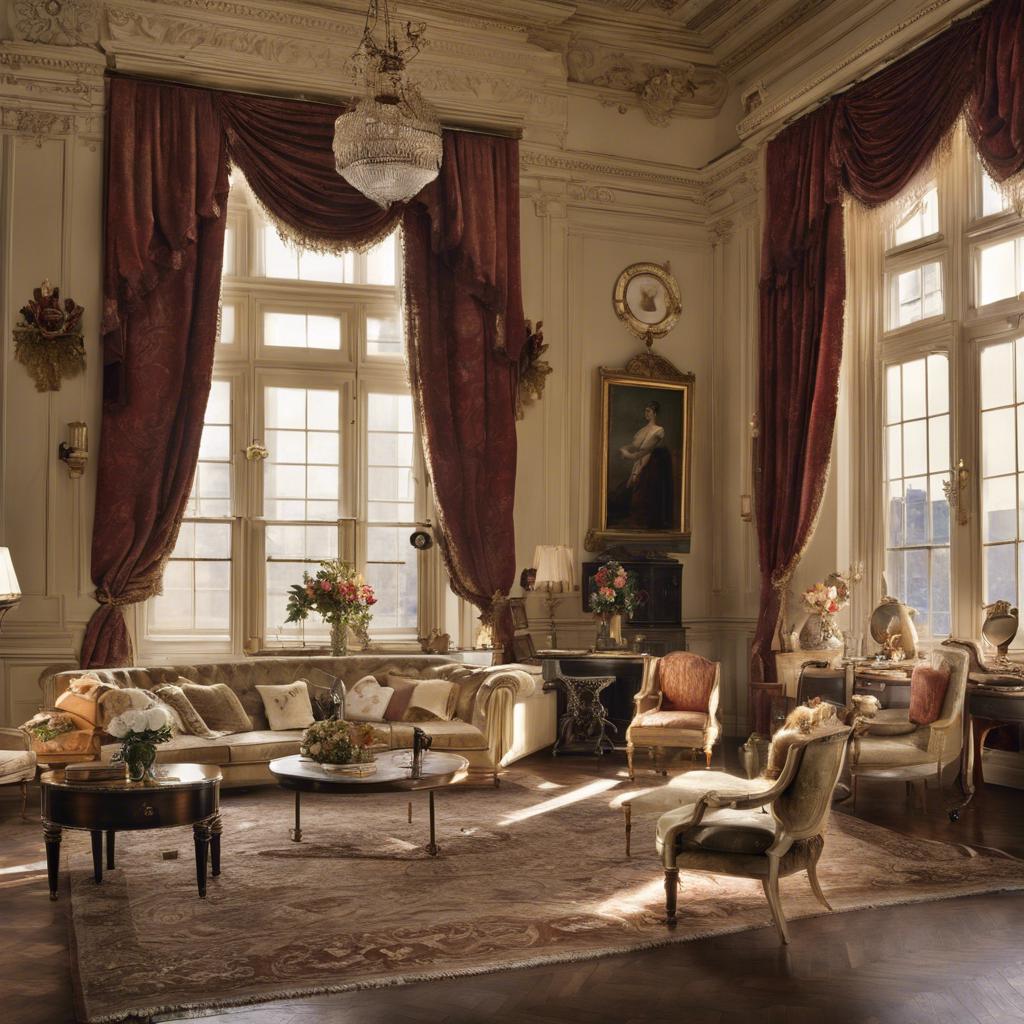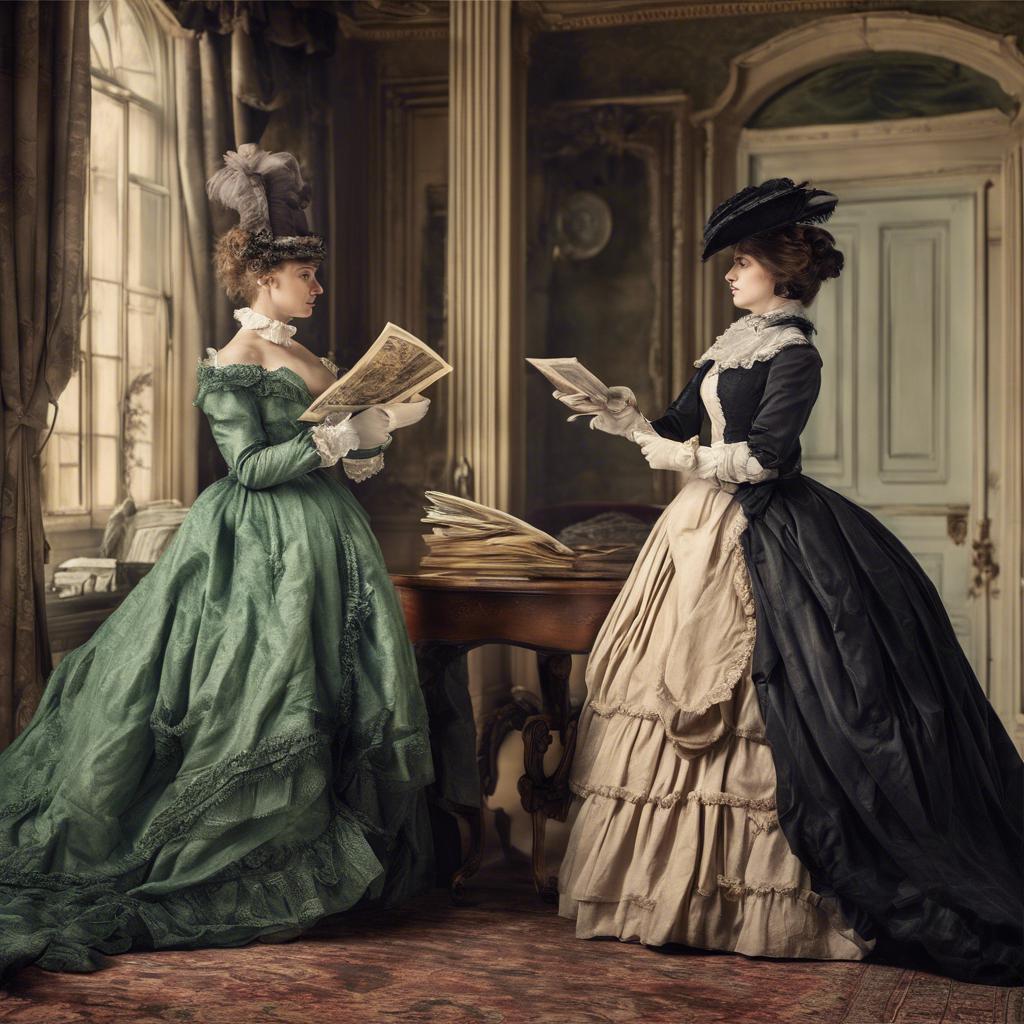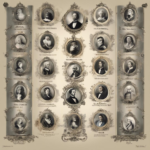The Regency Era and the Victorian Era are two distinct periods in history that have left a lasting impact on European society. Both eras are characterized by significant political, social, and cultural developments that have shaped the course of history. In this article, we will explore the differences between the Regency Era and the Victorian Era, highlighting key aspects such as fashion, art, literature, and societal norms. By delving into these two fascinating periods, we can gain a better understanding of the evolution of European society during the 18th and 19th centuries.
Step Into the World of Cheryl Bolen
Dive into the enchanting stories of love, intrigue, and elegance set in the Regency Era. Cheryl Bolen's novels offer timeless romance and captivating tales that will leave you wanting more.
Explore Cheryl Bolen's Books Now
Regency Era: A Time of Elegance and Luxury
The Regency Era and the Victorian Era were both periods of significant cultural change and development in England. While both eras are known for their elegance and luxury, there are distinct differences between the two time periods.
Regency Era:
- Spanned from 1811 to 1820
- Characterized by the influence of the regency era us”>dandy style in fashion
- Marked by the reign of King George IV
Victorian Era:
- Spanned from 1837 to 1901
- Characterized by the rise of industrialization and the middle class
- Marked by the reign of Queen Victoria
| Aspect | Regency Era | Victorian Era |
|---|---|---|
| Fashion | Dandy style | Bustle dresses |
| Monarch | King George IV | Queen Victoria |
Victorian Era: The Rise of Industrialization and Social Change
During the Regency Era, which spanned from 1811 to 1820 in England, there was a focus on social activities, fashion, and art as a form of escapism from the political and economic turmoil of the time. The Regency era was characterized by the influence of Romanticism in literature and art, as well as the extravagant fashions and social gatherings led by the Prince Regent, who later became King George IV.
On the other hand, the Victorian Era, which followed the Regency Era from 1837 to 1901, was a period of significant industrialization and social change in England. The Victorian Era saw the rise of factories, railways, and technological advancements that transformed the way people lived and worked. This era also saw the expansion of the British Empire and the emergence of the middle class, as well as movements for social reform and women’s rights.
In comparing the Regency Era to the Victorian Era, it is evident that there was a shift from a focus on luxury and leisure to one of progress and industry. While the Regency Era was known for its elegance and refinement, the Victorian Era was characterized by rapid industrial growth and social reform efforts. Despite these differences, both eras played a crucial role in shaping the cultural and societal landscape of England during the 19th century.
Comparing Fashion and Decor: From Regency Flair to Victorian Opulence
In the world of fashion and decor, the Regency era and Victorian era stand out as two distinct periods filled with unique styles and trends. The Regency era, which spanned from 1811 to 1820, is characterized by its elegant and refined aesthetics. Regency fashion was marked by high-waisted silhouettes, empire cuts, and delicate fabrics such as muslin and silk. On the other hand, Regency decor featured neoclassical elements, light color palettes, and ornate details such as Grecian urns and delicate floral motifs.
Transitioning into the Victorian era, which lasted from 1837 to 1901, we see a shift towards opulence and grandeur. Victorian fashion was known for its elaborate details, voluminous skirts, and structured bodices. Fabrics such as velvet, lace, and brocade were popular during this time. Victorian decor embraced the concept of ”more is more,” with rich colors, heavy drapery, and intricate patterns adorning homes. Ornate furniture, velvet upholstery, and elaborate chandeliers were common features.
When comparing the two eras, it is evident that Regency style exudes a sense of simplicity and grace, while Victorian style exudes luxury and extravagance. While both periods have their own unique charm, the Regency era offers a more understated and elegant approach to fashion and decor, while the Victorian era embraces a more lavish and ornate aesthetic. Whether you prefer the refined elegance of Regency flair or the opulent beauty of Victorian opulence, both eras have left a lasting impact on the world of fashion and decor.
Navigating Etiquette and Manners: Regency Politeness versus Victorian Formality
In the Regency era, politeness was of utmost importance in society. People were expected to adhere to a strict code of conduct to maintain social harmony. This included using polite language, observing proper manners at the dining table, and showing respect to one’s elders and superiors. In contrast, the Victorian era was characterized by a much more formal approach to etiquette, with an emphasis on elaborate ceremonies and rituals.
One key difference between Regency politeness and Victorian formality lies in the way individuals addressed each other. During the Regency era, people were more informal in their interactions, often using first names or nicknames. In comparison, the Victorian era saw a shift towards greater formality, with titles and surnames being used more frequently. This reflected the growing emphasis on social class and hierarchy during this period.
Furthermore, social gatherings in the Regency era were typically more relaxed and intimate, with a focus on conversation and entertainment. In contrast, Victorian society placed a greater emphasis on propriety and decorum, with elaborate rules governing behavior at formal events. The strict adherence to etiquette and manners during the Victorian era reflected the era’s values of respectability and conformity.
The Conclusion
the Regency Era and Victorian Era each played a significant role in shaping the social, cultural, and political landscapes of their respective time periods. While the Regency Era was characterized by elegance, luxury, and a certain sense of frivolity, the Victorian Era saw a shift towards industrialization, social reform, and moral rectitude. Both eras left a lasting legacy that continues to influence our perceptions of history and society today. By exploring the similarities and differences between these two distinct periods, we can gain a greater appreciation for the complexities of our shared past.


